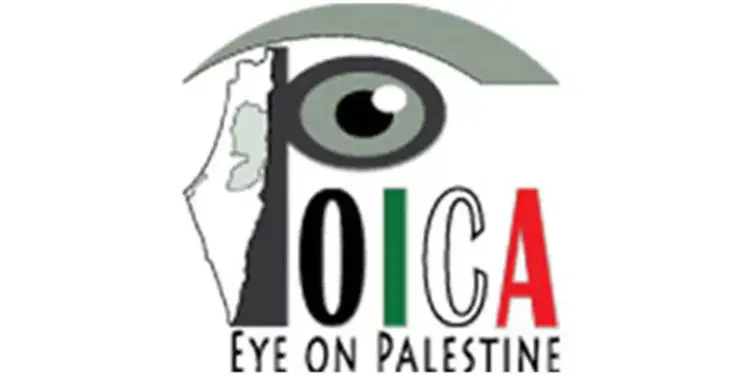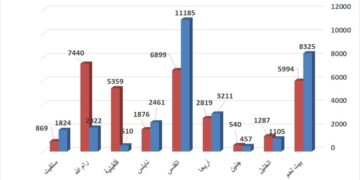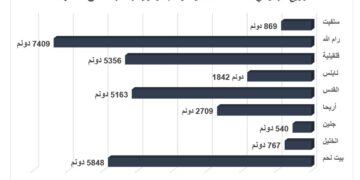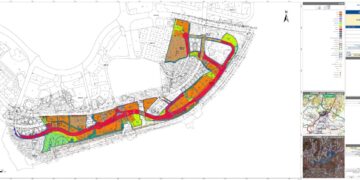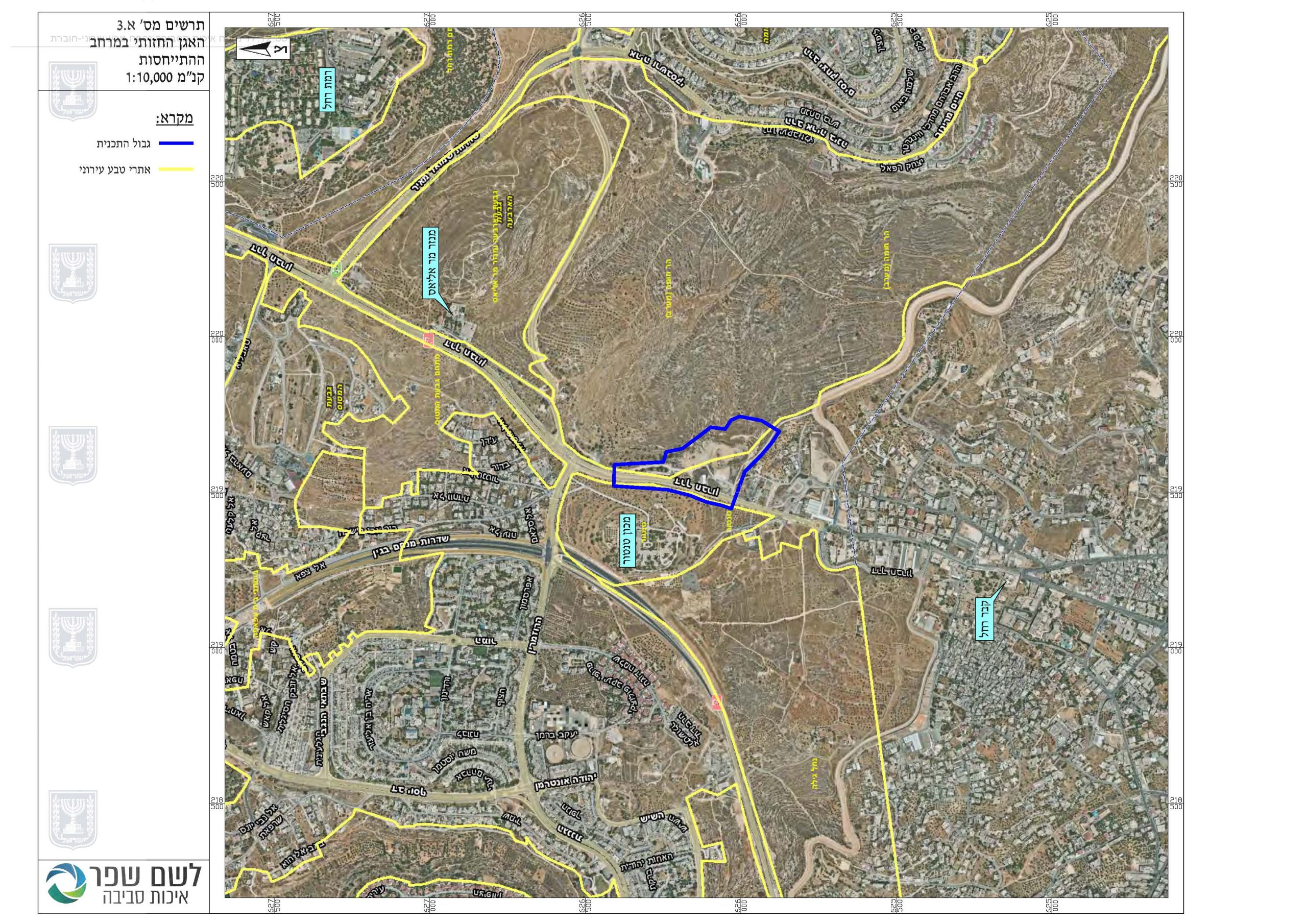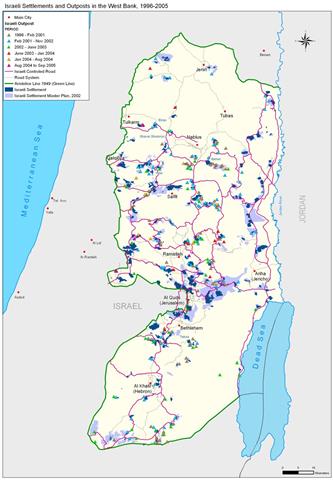Israeli Settlements have not been difficult to market to the Israeli public and the market for them is booming due to their low prices, their location, and most of all, the heavy international sales campaign. For those who would love to see a 'Greater Israel,' the opportunity is providing itself.
Construction of illegal Israeli settlements began following Israel's occupation of the Palestinian Territory in 1967. Building was in direct violation of the Geneva Convention, which states that 'the nature of the land occupied in war cannot be altered by the occupying power'. Despite the international condemnation of settlements’ construction, Israel found, and continues to find, many different ways to legalize the building of settlements. There have been continued outcries from the international community about Israel's illegal settlement construction in the West Bank; however, settlement construction has not stopped and the number has continued to grow to fulfill the Israeli vision of controlling more land and settling more Jewish settlers. Israeli has also connected the settlements with each other through bypass roads and prohibited Palestinians from using these roads even though they were constructed on lands legally owned by Palestinians. These roads divided up the lands of the West Bank and cut villages off from one another.
In addition to the building of new settlements and expansion of old ones, Israel started constructing the wall in June of 2002, not only encircling the land on which settlements have already been built on, but also encircling extra land to allow for future settlement expansion. Upon Completion, the wall will cause the isolation of 712 km² of the West Bank territory, most of which are agricultural and are crucial to the territory's economy.
Advertising to Religious Jews Abroad
The religious settlements have strong advertisement campaigns that reach out to a religious Jewish population from abroad to move to the settlements in the West Bank. The Amana Settlement Movement is an example of an Israeli organization that reaches out to those living abroad, inviting them to buy houses in illegal settlements in the West Bank. After helping someone to purchase property in a settlement, Amana goes so far as to guarantee to manage, rent, and maintain the home. In February 2007, Amana advertised to market housing units in Israeli settlements to Jews living abroad. The Ad invites Jews to walk in the footsteps of the Patriarch Abraham and depicts a religious family in modern clothing following in the path of Abraham depicted as a shepherd. The ad provides times for meetings at local synagogues in Miami to hear presentations from a variety of settlements, Neria, Cochav Hashachar, Otniel, Shilo, Kiryat Arba, Maale Hever, Sussia, and Eli.
'Aliya B'Simcha,' is an organization that reaches out to a more religious section of the Jewish population. It tries to convince those who live abroad to immigrate to Israel and to move to the settlements. The organization even offers a 'pilot trip,' a week long trip of touring through Israel and the occupied territories. The trip is offered for free if participants buy a house in a settlement within the next year. Click here for more information,' is an organization that reaches out to a more religious section of the Jewish population. It tries to convince those who live abroad to immigrate to Israel and to move to the settlements. The organization even offers a 'pilot trip,' a week long trip of touring through Israel and the occupied territories. The trip is offered for free if participants buy a house in a settlement within the next year.
Use of Propaganda
Often times, the marketing teams make outrageous claims on their websites and tend to refer to Palestinians simply as 'the Arabs.' The link, 'Aren't the Settlements Illegal?' uses a variety of propaganda tools to make the false claim that the settlements are actually legal because, they state, the Geneva Convention somehow does not apply to the Israeli occupation of the West Bank. In addition, the article claims that international law does not apply to the settlements in the West Bank because this land belonged to Israel in the first place.
The Israeli settlers also provide a link which claims that the Palestinian land in the West Bank actually belongs to the Jews, disregarding the fact that many of those here, have roots taking them back to the time of Christ and even far before. The link, which claims that the Palestinian land in the West Bank actually belongs to the Jews, disregarding the fact that many of those here, have roots taking them back to the time of Christ and even far before. The link, What do 'Judea' and 'Samaria' refer to?' refers to an article which completely ignores the importance of the realities on the ground and the characteristics of the Palestinian communities that have existed over the past few centuries. A map posted on Yesha Council website views the West Bank and Gaza, as just another part of Israel.
Marketing to a Secular Audience
The more shocking aspect of marketing the Israeli settlements is actually not the incentives provided by the religious groups or the propaganda they disseminate about the Jewish population's right to settle the land; instead, the issue which is far more upsetting is the high numbers of secular Israelis who choose to move into the illegal settlements. Many Israelis choose to move to the settlements simply because the housing is cheaper; in fact, much, much cheaper than anywhere in the vicinity of Jerusalem or Tel Aviv. For example, a 200-sq-meter apartment in the Maale Adumim settlement is marked as $300,000 dollars, while a 175-sq-meter apartment in the moderately priced Jerusalem neighborhood of Kiryat Moshe is on sale for $590,00 (Click here for more information). ).
In the past, a clear line (The Green Line or 1949 Armistice Line) used to exist between what is considered the West Bank and what is considered Israel, but now, to many average Israelis, a Jewish settlement near the Palestinian city of Bethlehem is no longer different from any other neighborhood in Jerusalem. This change in the Israeli thinking is apparent on websites marketing the new real estate, such as the one posted at on the website for Laurent Boubli Real Estate, in which a home in the illegal settlement of Har Homa is listed as 'Har Homa, Jerusalem' right along with homes in neighborhoods that are actually in Jerusalem such as Rehavia. , in which a home in the illegal settlement of Har Homa is listed as 'Har Homa, Jerusalem' right along with homes in neighborhoods that are actually in Jerusalem such as Rehavia.
Israeli students now think about attending private colleges in settlements for the sole reason that they can receive the same quality of education as they would in Israel proper but for half the tuition. Many students who live in Israel proper choose to attend the private college in Ariel simply because the tuition is less expensive and because it is nearer to Tel Aviv and Jerusalem than where they are originally from.
Convergence of Corporation, Government, and Religion
One frightening aspect about the process of the illegal Israeli settlements is that three forces have combined in support of the action. Corporations stand to benefit from the building. Such corporations, such as 'Bar Amana' are highly connected with the government and buy contracts from the government to build in the area. These corporations receive financial benefits for building in the West Bank. More information about Bar Amana is available here. .
In the settlement of Modi'in Illit North West of Ramallah city, the developers have been particularly tricky. By naming the settlement, Modi'in Illit, it sounds as if it is merely an extension of the city in Israel proper, Modi'in. This, though, is actually a settlement built on the land of the Palestinian village, Bil'in. The Danya Cebus firm is the main contractor of the settlement and has made huge profits from building in the area. The building of the settlement here not only serves corporate interests, but also serves the interest of the government by acting to blur the 'Green Line' of 1967. In this way, the interests of the corporate entrepreneurs, the religiously zealous, and the government intersect. firm is the main contractor of the settlement and has made huge profits from building in the area. The building of the settlement here not only serves corporate interests, but also serves the interest of the government by acting to blur the 'Green Line' of 1967. In this way, the interests of the corporate entrepreneurs, the religiously zealous, and the government intersect.
Is There Hope?
Although there is most likely no way to stop religious fundamentalists and government officials from constructing more illegal settlements, there is hope for stopping secular Israelis from supporting these illegal activities. Lacking religious convictions concerning these areas, they are more likely to see it simply from a humanitarian point of view. Many secular Israelis are unaware of the terrible effects that these settlements have on the Palestinian populations who live nearby. They do not realize that the settlements are built on land taken from its legal Palestinian owners and are the main obstacle to peace.
Prepared by
The Applied Research Institute – Jerusalem (ARIJ)


